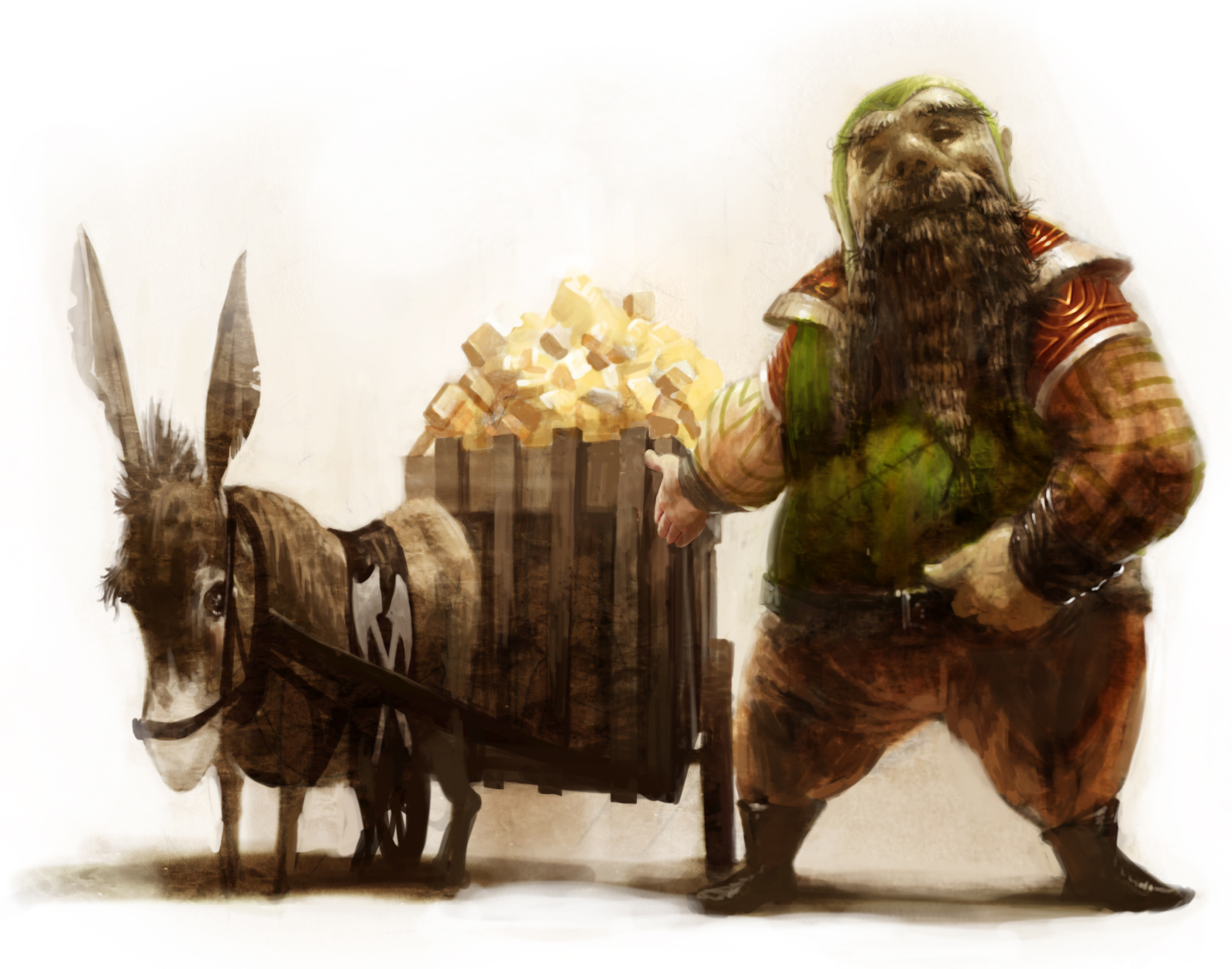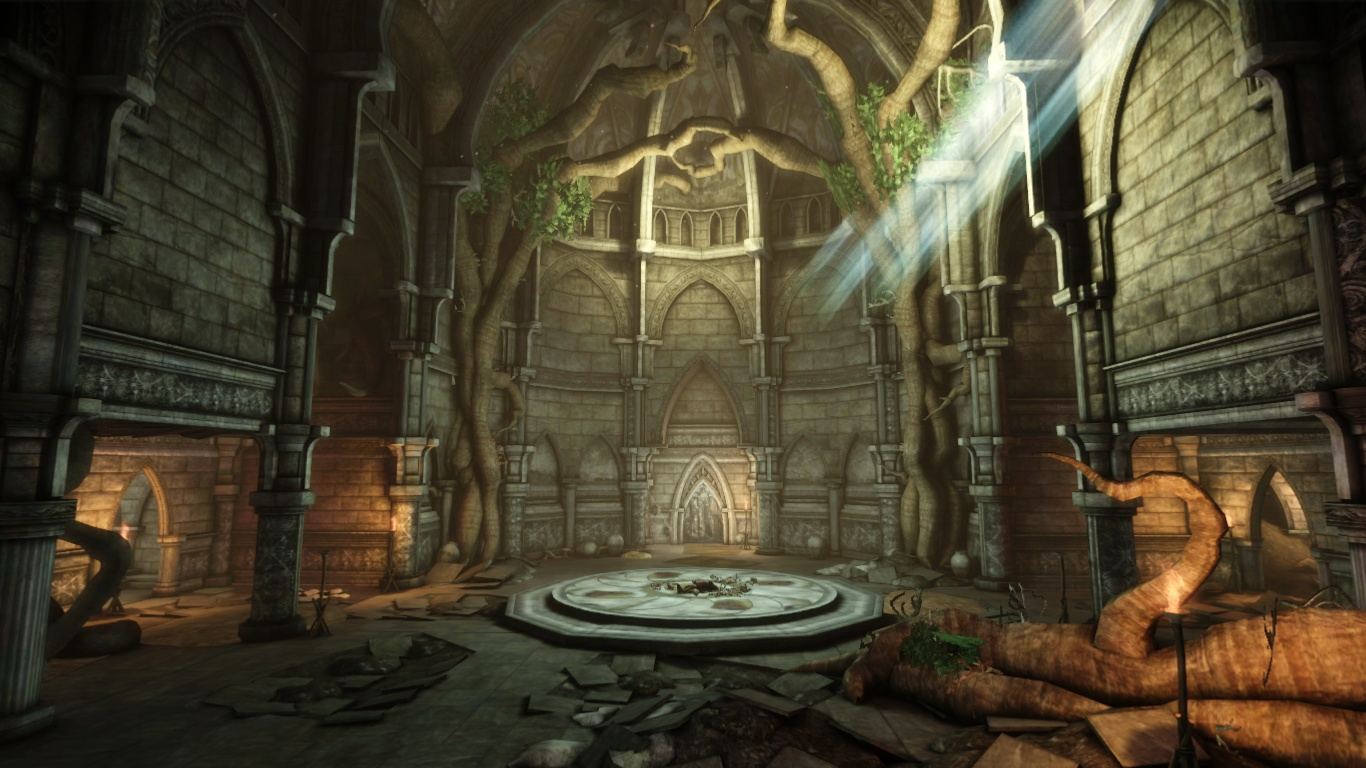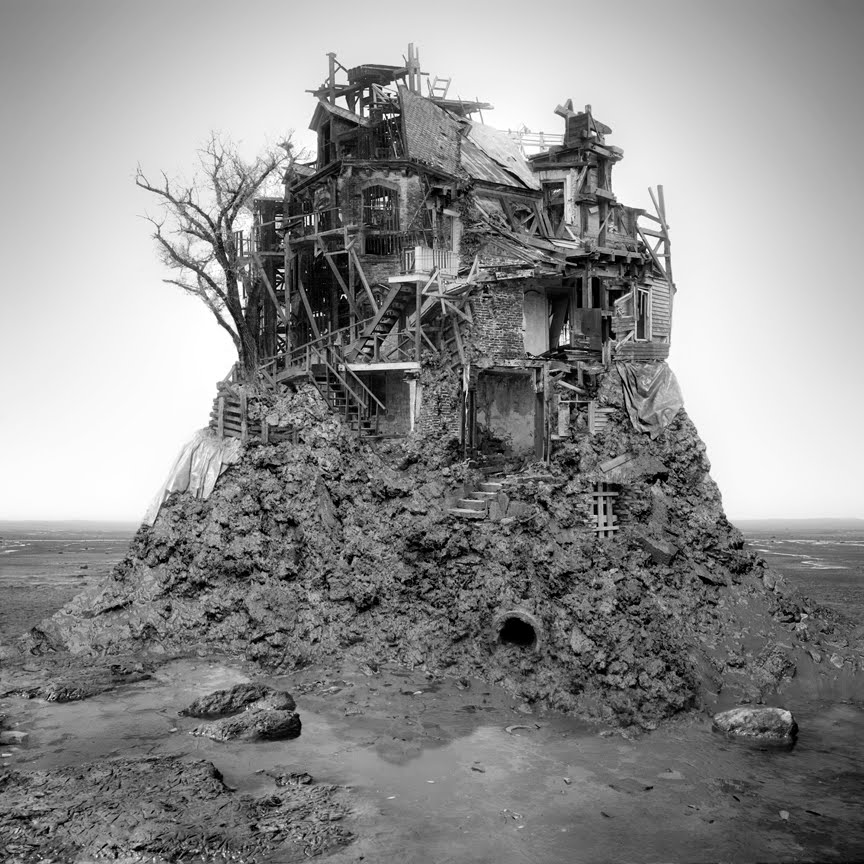Quickleaf
Legend
7: Dwarven Mint
Dwarven Mint
[sblock=art inspiration]

 [/sblock]
[/sblock]
When the poet Ioeluf spoke of "rivers of gold" on the planes, he surely must have been thinking of the Dwarven Mint in Strongale Hall. Here platinum, gold, silver, and copper ingots brought up from Dumathoin's hall and cleaned in Dugmaren Brightmantle's hall are smelted and poured into great molds, creating coins recognized across the Outlands and Sigil. It's said a body can't cross the Outlands without coming across a trader dealing in dwarven coin, and the engravings are so fine, with unique ribbing around the rim of every coin, that forgeries are virtually impossible. Which dwarf gets to see their face emblazoned for eternity on the coins is a matter of great pride and much scheming, the honor going to whichever follower of one of the three gods most pleased Vergadain with their ventures the past year. Likewise, being choosen to craft the design for a new coin is a great honor coming with the title of Noble Coin-maker; competition among dwarves for this title is fierce. There are darker whispers about the coins, however, detractors claiming that Vergadain traps his enemies in the form of coins, though the truth is such occurred are rare and usually are intended to give the offender an opportunity to see the cosmos thru Vergadain's eyes: as an unending great game of trade.
Alia Horfinch(Px/ female dwarf/ rogue 8/ N) loosely runs the mint, though her efficenient dwarven petitioner workmen are extremely adept at their task and require little supervision. For accessing the hottest areas, repairing crucibles, and dealing with leaks of molten gold, copper automatons are employed. These automatons were a gift from Dugmaren Brightmantle and have turned an already streamlined operation into an example of efficiency to rival any across the planes. However, sometimes glitches occur. Chaos imps may follow planewalkers from Limbo to wreck havoc with the machinery or the copper automatons. Alia Horfinch may issue a recall if the test production of a new coin doesn't meet her exacting specifications. And sometimes dwarven petitioners, turning over an old coin in their hand on its way to be smelted and re-cast may have fleeting memories or emotions from their lives before; gold is indeed a powerful touchstone to the dwarves, and during such "gold-lapses" things tend to get overlooked.
Operating a mint in the realm of a god revered by thieves (even non-evil ones) presents the constant challenge of dealing with coin-clippers and counterfeiters of the Gilded Palm thieves' guild. Both sides are quite sophisticated in their techniques, and both seem to have Vergadain's support, making any edge one can get over the other (such as a part of adventurers) of great interest. Currnt rumors of cursed "luck-eating" coins being distributed by the thieves have the mint's investigators on high alert; they will pay handsomely for any information leading to the identity of the rogue responsible.
Dwarven Mint
[sblock=art inspiration]


When the poet Ioeluf spoke of "rivers of gold" on the planes, he surely must have been thinking of the Dwarven Mint in Strongale Hall. Here platinum, gold, silver, and copper ingots brought up from Dumathoin's hall and cleaned in Dugmaren Brightmantle's hall are smelted and poured into great molds, creating coins recognized across the Outlands and Sigil. It's said a body can't cross the Outlands without coming across a trader dealing in dwarven coin, and the engravings are so fine, with unique ribbing around the rim of every coin, that forgeries are virtually impossible. Which dwarf gets to see their face emblazoned for eternity on the coins is a matter of great pride and much scheming, the honor going to whichever follower of one of the three gods most pleased Vergadain with their ventures the past year. Likewise, being choosen to craft the design for a new coin is a great honor coming with the title of Noble Coin-maker; competition among dwarves for this title is fierce. There are darker whispers about the coins, however, detractors claiming that Vergadain traps his enemies in the form of coins, though the truth is such occurred are rare and usually are intended to give the offender an opportunity to see the cosmos thru Vergadain's eyes: as an unending great game of trade.
Alia Horfinch(Px/ female dwarf/ rogue 8/ N) loosely runs the mint, though her efficenient dwarven petitioner workmen are extremely adept at their task and require little supervision. For accessing the hottest areas, repairing crucibles, and dealing with leaks of molten gold, copper automatons are employed. These automatons were a gift from Dugmaren Brightmantle and have turned an already streamlined operation into an example of efficiency to rival any across the planes. However, sometimes glitches occur. Chaos imps may follow planewalkers from Limbo to wreck havoc with the machinery or the copper automatons. Alia Horfinch may issue a recall if the test production of a new coin doesn't meet her exacting specifications. And sometimes dwarven petitioners, turning over an old coin in their hand on its way to be smelted and re-cast may have fleeting memories or emotions from their lives before; gold is indeed a powerful touchstone to the dwarves, and during such "gold-lapses" things tend to get overlooked.
Operating a mint in the realm of a god revered by thieves (even non-evil ones) presents the constant challenge of dealing with coin-clippers and counterfeiters of the Gilded Palm thieves' guild. Both sides are quite sophisticated in their techniques, and both seem to have Vergadain's support, making any edge one can get over the other (such as a part of adventurers) of great interest. Currnt rumors of cursed "luck-eating" coins being distributed by the thieves have the mint's investigators on high alert; they will pay handsomely for any information leading to the identity of the rogue responsible.
Last edited:









